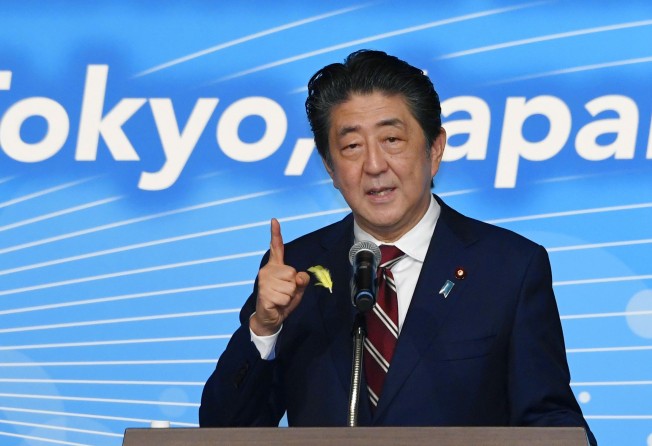Japan’s quiet #MeToo moment is an economic indicator
Japanese Prime Minister Shinzo Abe has failed to enact specific and clear reforms designed to empower women in spite of pledges to do so

It’s the BBC documentary Prime Minister Shinzo Abe doesn’t want you to see. Ostensibly, “Japan’s Secret Shame” tells the story of journalist Shiori Ito’s rape allegations against a prominent male media personality. But it also hints at a bigger story: why Abenomics is stumbling.
Japan’s notoriously docile media is reluctant even to mention the name of Ito’s alleged attacker. Tokyo Broadcasting System’s Noriyuki Yamaguchi is known to have close ties with Abe. To many, the lack of charges against him smack of a political coverup. Local media largely looked the other way when BBC dropped its documentary on June 28.
The contrast with the #MeToo reckoning in the West couldn’t be starker. The same goes for the gender-related headwinds holding back Asia’s second-biggest economy.
Empowering women – making them “shine”, as Abe put it – was a key pillar of Tokyo’s five-plus-year-old reflation scheme. Abe claimed to be inspired by the “womenomics” research of Goldman Sachs strategist Kathy Matsui. By Matsui’s calculations, Japan’s gross domestic product would get a 15 per cent boost if female labour participation rates matched those of men, or about 80 per cent.
Yet Abe’s supposed feminist turn is heavy on spin, light on policy. He’s talked about prodding companies to hire and promote women, but demurred on mandates or quotas. Abe opted against incentivising companies to better utilise Japan’s female labour pool through tax breaks or preferential access to government contracts. His 20-member cabinet features just two women, neither of whom play a key role. Were Abe to lead by example he’d entrust a vital portfolio to a woman – finance, foreign affairs or chief cabinet secretary.
When Tokyo does experience a whiff of #MeToo controversy, the greybeards of Abe’s Liberal Democratic Party circle the wagons. Allegations in May that a top finance bureaucrat sexually harassed a female reporter had Abe’s vice-premier, Taro Aso, blaming the victim.
Data are harder to spin. Tokyo’s ranking in the World Economic Forum’s gender empowerment index fell precipitously on Abe’s watch – to an all-time low of 114th from 98th when he took power in 2012. Tokyo trails Saudi Arabia of all places in the number of women in politics. Not a single Nikkei-225 Index company is helmed by a Japanese woman.
Abe’s womenomics failing fits with a bigger pattern. Talk is great, but bold change requires specific and clear reforms. Along with empowering women, Abe talked big about loosening labour markets, catalysing innovation, supporting start-ups and cutting red tape. Abe has largely treated symptoms, not underlying maladies.
As originally envisioned, Abenomics had three phases. The first – aggressive monetary easing – was fully deployed. Construction ahead of the 2020 Olympics took care of the fiscal stimulus part. But Abe largely punted on structural upgrades, the third and most vital phase. Moves to tighten corporate governance are welcome, but none of these tweaks is fattening paychecks or boosting household spending.
The same goes for Abe’s milquetoast gender policies. While the female labour participation rate hit a record 69 per cent last year, women also account for about two-thirds of “non-regular” workers who get less pay, fewer benefits and negligible job security. The upshot may be that Abe’s timid womenomics push is doing more to depress national wages than enliven growth.
You don’t need to watch BBC to know Abe must add teeth to policies to catalyse real change and level the playing field. It also would help to pull Japan into the global conversation about gender power imbalances. Tokyo’s absence from the #MeToo zeitgeist says much about the patriarchal ethos impeding social progress. Increasingly, though, it also is shedding light on an underperforming economy that could use a jolt of diversity.
William Pesek is a Tokyo-based journalist and author. He has written for Bloomberg and Barron’s